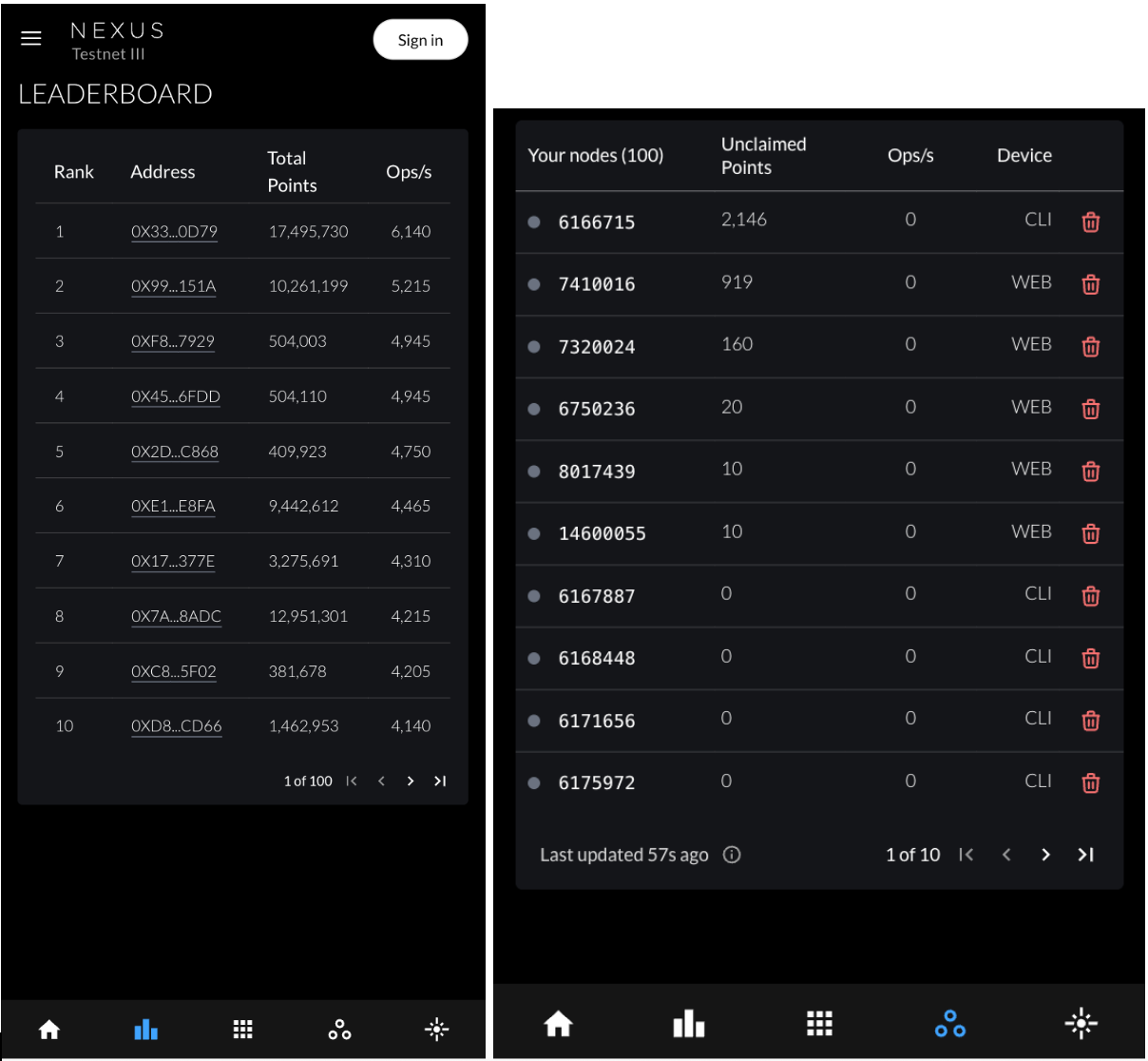Nexus Changelog 02.13.26
This changelog outlines updates across three core areas: the trading interface and infrastructure powering the Exchange, improvements to the broader

This cycle of the Nexus Changlog focused on improving the mobile user experience, tightening CLI performance and reliability, and advancing the modular prover architecture in the zkVM.
The mobile experience on Nexus OS has taken a major step forward. A new bottom navigation bar makes app exploration smoother on smaller screens, while power consumption has been reduced for devices waiting on proof tasks — an important efficiency gain for mobile contributors. The leaderboard is now fully responsive and optimized for reduced data use, with per-page data fetching that minimizes loading time.
Claiming rewards is easier than ever: Users can now initiate claims directly from the homepage, and pending transactions are displayed clearly on the rewards page. The Nodes dashboard has also been updated to sort by unclaimed points, surfacing the most valuable information first.

Behind the scenes, the backend has been upgraded to handle a greater volume of proof claims more quickly. This optimization improves throughput and sets the stage for higher network participation as usage scales.
The CLI received a range of usability, performance, and deployment upgrades in this release. The installation script has been improved for reliability across platforms, particularly for precompiled builds, reducing friction during onboarding. For developers and operators, Docker support is now available — making it easier to run the CLI in containers for consistent deployment across systems.
Performance enhancements continue across the board. Build-time optimizations and smarter task caching lead to faster proof processing. The CLI also now verifies proofs locally before submitting them to the server — ensuring correctness and reducing unnecessary traffic.
The terminal UI has been refined with better color usage and clearer layout, improving the overall experience for users running the CLI in TUI mode to monitor ongoing proving activity.
The Nexus zkVM continues to progress toward a more modular and performant proving engine. The team completed the implementation of RV32i execution chips, a foundational component of the new prover design. Additional work addressed a minor completeness issue in the RV32m chip and increased emulator efficiency, laying the groundwork for faster, more scalable zero-knowledge execution.
As we prepare for broader testnet participation and increased proving demand, these improvements — particularly on mobile, CLI, and the zkVM — help ensure Nexus remains fast, accessible, and resilient. Stay tuned as we continue building toward the launch of mainnet.
For full documentation and contribution details, visit docs.nexus.xyz or follow our work on GitHub.